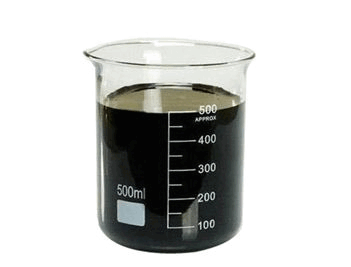CYTOTOXIC EFFECT, ANTIOXIDANT POTENTIAL, AND PHYTOCHEMICAL STUDY OF THE ETHYL ACETATE EXTRACT OF PLEIOGYNIUM TIMORENSE SEEDS
Keywords:
Antioxidant, cytotoxic, ethyl acetate extract, phytoconstituents, Pleiogynium timorense seedsAbstract
Objective: The aim of the current research was to evaluate the cytotoxicity of Pleiogynium timorense seeds against different human cancer cell lines, its antioxidant activity and to investigate its phytoconstituents.
Methods: Ethyl acetate extract of Pleiogynium timorense seeds was assayed for the cytotoxic effect against liver cancer cell line (HepG2), ovarian cancer cell line (SKOV-3) and prostate cancer cell line (PC-3) using SRB (Sulforhodamine B) assay. The antioxidant activity was evaluated by the DPPH radical scavenging assay using Trolox as a standard. The phytochemical components of the plant extract were examined using various phytochemical screening methods. The polyphenolic contents of the extract were analyzed using high performance liquid chromatography (HPLC).
Results: The result revealed that the seed extract exhibited very potent effect against HepG-2 cancer cell line with IC50=1.62 μg/mL, and against SKOV-3 cancer cell line with IC50 =6.37 μg/mL, while a moderate effect against PC-3 cancer cell line with IC50=46 μg/mL, by comparing with that of Doxorubicin. Moreover, IC50 values of Trolox and the seed extract were 24.42 ± 0.87 and 90.4±0.32 μg/ml, respectively. The results revealed the presence of the flavonoids, tannins and triterpenes and/or sterols in the seed extract. While, it revealed the absence of coumarins, alkaloids, saponins and carbohydrate and/or glycosides from the extract.
Conclusion: In conclusion, the current study highlights the effect of ethyl acetate extract of Pleiogynium timorense seeds as antioxidant and a potent cytotoxic agent against different human cell lines aiming to be the first step towards the discovery of safe natural anticancer drug.

Peer Review History:
Received: 5 April 2022; Revised: 9 May; Accepted: 12 June; Available online: 15 July 2022
Academic Editor: Dr. Tamer Elhabibi , Suez Canal University, Egypt, tamer_hassan@pharm.suez.edu.eg
, Suez Canal University, Egypt, tamer_hassan@pharm.suez.edu.eg
Reviewers:
 Dr. Sangeetha Arullappan, Universiti Tunku Abdul Rahman, Malaysia, sangeetha@utar.edu.my
Dr. Sangeetha Arullappan, Universiti Tunku Abdul Rahman, Malaysia, sangeetha@utar.edu.my
 Prof. Dr. Ali Gamal Ahmed Al-kaf, Sana'a university, Yemen, alialkaf21@gmail.com
Prof. Dr. Ali Gamal Ahmed Al-kaf, Sana'a university, Yemen, alialkaf21@gmail.com
Downloads

Published
How to Cite
Issue
Section

This work is licensed under a Creative Commons Attribution-NonCommercial 4.0 International License.









 .
.